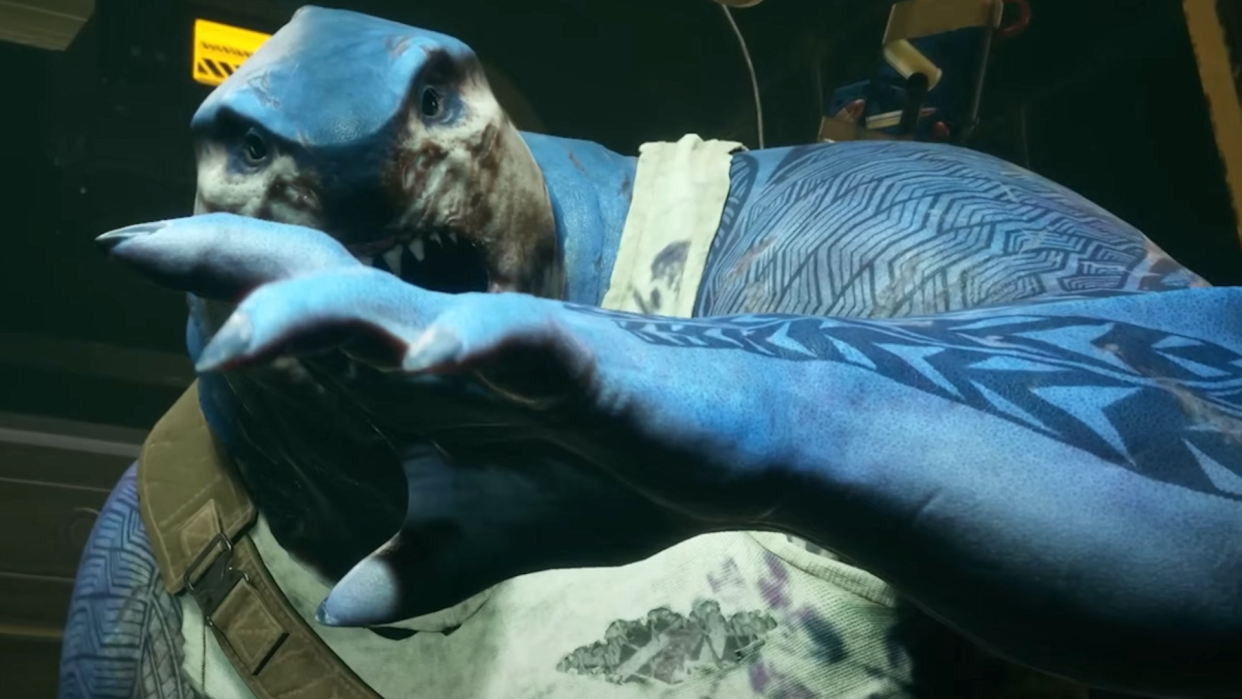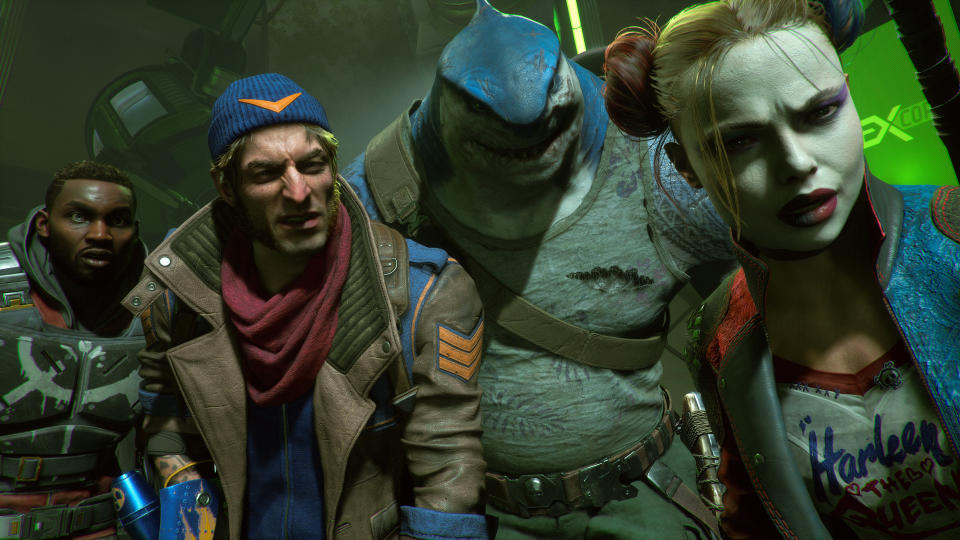Oof: Suicide Squad: Kill the Justice League lost Warner Bros. $200 million—which is $25 million more than the original 2016 movie cost to make

Suicide Squad: Kill the Justice League, despite having some bright spots, is nevertheless a complete disaster for Warner Bros. Entertainment. The live-service disappointment has led to the company, uh, growing more focused on live service and free-to-play games for some reason. Though more notably its existing properties and games, such as Hogwarts Legacy—which the majority of Suicide Squad's team has reportedly been shunted onto.
The staggering loss was, according to a Bloomberg report, put into perspective during an earnings call in May, where Warner Bros. "revealed it was taking a $200 million loss on Suicide Squad".
For context, the original 2016 Suicide Squad movie—the bad one—cost $175 million dollars to make—that is, before you factor in various advertising costs. Despite being a critical failure by most metrics, the film still managed to take off at the box office to the tune of over $725 million worldwide. I've sympathy for Rocksteady, but that comparison's gotta sting.
Bloomberg's Jason Schreier also spoke to "nearly two dozen" developers who chose to remain anonymous—but who still, regardless, told a story of confusing zig-zags and U-turns that paint a messy picture of the game's development.
Initially Rocksteady had prototyped an "original multiplayer puzzle-solving game" called Stones—but in 2016, the project was sidelined in favour of Suicide Squad. They'd been part of the landscape for years but, circa 2016-2017, live service games were popping off. Destiny 2 and Fortnite: Battle Royale swept the world by storm less than a year after Rocksteady's sharp left, while MOBAs such as League of Legends and Dota 2 were already pulling in numbers.
The climate seemed auspicious and ripe for Rocksteady's take on a looter-shooter: "Rocksteady executives soon decided that, in keeping with their parent company’s newfound enthusiasm, Suicide Squad would become an online multiplayer game with live-service content."
The report most notably calls out Rocksteady's leadership, namely, Jamie Walker and Sefton Hill, as being a cause of a lot of the confusion—and while it's possible they could've been experiencing some pressure from the big boys up top, it still reads as a massively chaotic time for the studio. Two notable swerves are pointed out.
First up, Suicide Squad was meant to have an emphasis on melee combat, but decided to become more gun-focused as time went on. "The change left some staff members wondering why protagonists such as Captain Boomerang, known for fighting with his namesake weapon, would suddenly pivot to gunplay." Yeah, me too.
Hill reportedly also wanted to make vehicles a thing, after the game's current movement systems had been developed: "Why, [developers] wondered, would players using Deadshot or King Shark bother with a motorcycle when they could just soar through the air? After months of experimentation and prototyping, the vehicle system was scrapped."
In fact, the report comes down particularly hard on Hill, who is said to have been tardy on reviewing work and unfamiliar with the games Suicide Squad was trying to mimic: "Staff members sometimes waited weeks or months for Hill, the studio’s perfectionist co-founder and director of the game, to review their work … He scrapped big chunks of the script and struggled to convey his evolving ideas, they said, confessing that he hadn’t spent much time with competing games such as Destiny."
It should be noted at this point that both Hill and Walker left the studio shortly before Suicide Squad's release. The Bloomberg report states that, when hunting for potential recruits from Rocksteady, "they would have the opportunity to make a game free of the mandates and pressures from a corporation like Warner Bros".

There's already a couple of conflicting narratives emerging here—with the way some discourse has proceeded online, you'd be forgiven for thinking that Rocksteady was forced at metaphorical gunpoint by the big bad Warner Bros. into making live-service slop.
Conversely, the Bloomberg report paints Walker and Hill as very much being on-board with the transition, but confused in actually delivering it. Two things can, I suppose, be true at once. Warner Bros. could've been an overbearing parent wanting Rocksteady to rustle up a Destiny pronto, with Walker and Hill nervously trying to make the best game they could in a space the studio had zero prior experience with.
Despite the development's twilight years taking place in an industry becoming evermore littered with the gravestones of similar games, the studio handled the coming storm with a gusto similar to the one I held during university. That is, carrying on with a nah, it'll probably be fine. "Promises from management" stated that "Suicide Squad would eventually coalesce at the last minute, just as the Arkham games had. Several employees adopted the term 'toxic positivity' to describe the culture of the company, which discouraged criticism."
I don't think crossing your fingers really tightly cuts it for the development of a game with millions of dollars poured into it, worked on by over 200 staff—but what do I know? Warner Bros., who are a lot more miserly about the game in hindsight, were apparently much the same:
"Despite the internal concerns among frontline workers, executives from Warner Bros. kept reviewing demonstrations of the game and sending laudatory feedback, praising the graphics and saying they expected Suicide Squad to become a billion-dollar franchise." Needless to say, it did not.


